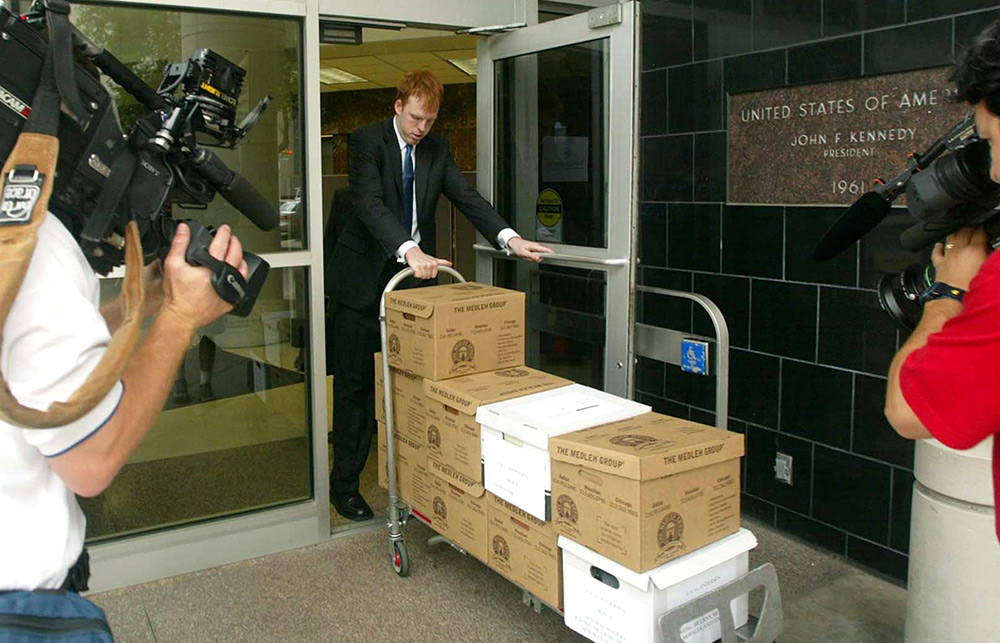
英国审计业务监管方财务报告委员会于7月6日出台新规,旨在提升审计机构的独立性。新规对审计合伙人的薪酬支付方式进行了聚焦,这样,来自于咨询服务(要求在一定程度上讨好客户)的费用不会过度影响审计机构对这些客户的怀疑态度。
虽然新规的出发点是好的,但光有新规还不够。审计机构可以轻易地利用新规来调高审计费用,但这并不意味着他们会加强对客户的要求。确实,我们经常看到,审计公司会遵守这些新规具体条款,但却对条款的初衷视而不见。对于审计公司以前是否支持相关规定,新规得到审计公司广泛支持的事实应该让监管方松了一口气。
而制定新规的动力似乎来自于Wirecard会计丑闻。Wirecard是德国DAX 30股指企业之一,而且这类成功的科技企业在欧洲可谓是凤毛麟角。然而,这家公司似乎就是因为明显的现金欺诈而轰然倒塌。当时,审计方的审计依据显然是其客户现金余额的第三方陈述。这一点很荒谬。即便我的房东不是审计人员,而且也知道我在牛津大学的教授身份,但他依然会让我出示更高标准的证据来证实我的收入。
这并非是审计员不懂业务,我所遇到的大多数审计合伙人都有着超强的业务能力。真正的原因在于,审计公司的文化并不会对找茬行为予以充分的奖励。让审计员前往Wirecard,了解更多有关现金余额的证据会让他们感到不悦,而且此举也是在告诉客户,审计方并不信任他。对客户如此激进是一种诅咒,即便对于审计公司的合伙人来说亦是如此。就连审计新手也知道该如何处理这种事情,这没有什么好奇怪的。
贝塔尼·麦克林恩是金融记者中的英雄。2001年,这位当时30岁的《财富》杂志记者撰写了一篇重要文章,质问全球最有价值以及最令人敬畏的公司:安然。她的文章帮助揭开了安然赖以生存的大规模财务造假,并帮助扳倒了这家公司和其审计方安达信公司,后者是当时全球最受尊敬的审计公司之一。
贝塔尼·麦克林恩在故事中所体现出的胆识已经成为了商学院和新闻学课堂的神话,就像是现实版的大卫与巨人哥利亚(圣经故事,大卫杀死了巨人哥利亚——译者注)。我所遇到过的严肃金融记者都渴望能够撰写一篇类似于安然式的重量级新闻。
审计公司对于麦克林恩式的重磅故事有什么样的看法?审计新手一开始都是以哪些案例作为榜样,并将其融入到与客户的合作中?这些案例是存在的,每个机构都有文化建设案例,不过这类案例并不受首席执行官们的待见,然而在如今的审计公司内部,这些案例并不涉及挑客户管理实践的毛病。
这些案例倒是涉及那些被赶出局的检举者以及无法获得升职的麻烦制造者。新手们会了解到,如果要留在公司并拿到合伙人级别的薪资,自己应该怎么做,而且公司并不建议给客户上眼药。
Wirecard欺诈再次让公众聚焦一些审计员不公正的玩忽职守行为。审计危机已经成为了资本主义当前危机的核心内容,很多人并不信任资本主义,因为他们将其看作是监守自盗。审计员本应帮助公司抵御被没收的风险,然而,他们经常会表现出一副心不在焉的状态。
对于审计公司来说,我们希望看到的是它们能够真正致力于打造正确的内部文化,而且是一种可以充分质疑和挑战客户管理实践的文化。很多客户不会喜欢这种文化,但这也恰恰是我们需要审计员,以及制定审计章程的初衷。除非我们能够确保向审计新手们讲述其最受尊敬的合伙人是如何通过细致的调查扳倒了奸诈的首席财务官这类重磅故事,否则新规再多也是于事无补。
卡西科·拉玛纳是牛津大学布拉瓦尼克政治学院商业与公共政策教授。(财富中文网)
译者:Feb
英国审计业务监管方财务报告委员会于7月6日出台新规,旨在提升审计机构的独立性。新规对审计合伙人的薪酬支付方式进行了聚焦,这样,来自于咨询服务(要求在一定程度上讨好客户)的费用不会过度影响审计机构对这些客户的怀疑态度。
虽然新规的出发点是好的,但光有新规还不够。审计机构可以轻易地利用新规来调高审计费用,但这并不意味着他们会加强对客户的要求。确实,我们经常看到,审计公司会遵守这些新规具体条款,但却对条款的初衷视而不见。对于审计公司以前是否支持相关规定,新规得到审计公司广泛支持的事实应该让监管方松了一口气。
而制定新规的动力似乎来自于Wirecard会计丑闻。Wirecard是德国DAX 30股指企业之一,而且这类成功的科技企业在欧洲可谓是凤毛麟角。然而,这家公司似乎就是因为明显的现金欺诈而轰然倒塌。当时,审计方的审计依据显然是其客户现金余额的第三方陈述。这一点很荒谬。即便我的房东不是审计人员,而且也知道我在牛津大学的教授身份,但他依然会让我出示更高标准的证据来证实我的收入。
这并非是审计员不懂业务,我所遇到的大多数审计合伙人都有着超强的业务能力。真正的原因在于,审计公司的文化并不会对找茬行为予以充分的奖励。让审计员前往Wirecard,了解更多有关现金余额的证据会让他们感到不悦,而且此举也是在告诉客户,审计方并不信任他。对客户如此激进是一种诅咒,即便对于审计公司的合伙人来说亦是如此。就连审计新手也知道该如何处理这种事情,这没有什么好奇怪的。
贝塔尼·麦克林恩是金融记者中的英雄。2001年,这位当时30岁的《财富》杂志记者撰写了一篇重要文章,质问全球最有价值以及最令人敬畏的公司:安然。她的文章帮助揭开了安然赖以生存的大规模财务造假,并帮助扳倒了这家公司和其审计方安达信公司,后者是当时全球最受尊敬的审计公司之一。
贝塔尼·麦克林恩在故事中所体现出的胆识已经成为了商学院和新闻学课堂的神话,就像是现实版的大卫与巨人哥利亚(圣经故事,大卫杀死了巨人哥利亚——译者注)。我所遇到过的严肃金融记者都渴望能够撰写一篇类似于安然式的重量级新闻。
审计公司对于麦克林恩式的重磅故事有什么样的看法?审计新手一开始都是以哪些案例作为榜样,并将其融入到与客户的合作中?这些案例是存在的,每个机构都有文化建设案例,不过这类案例并不受首席执行官们的待见,然而在如今的审计公司内部,这些案例并不涉及挑客户管理实践的毛病。
这些案例倒是涉及那些被赶出局的检举者以及无法获得升职的麻烦制造者。新手们会了解到,如果要留在公司并拿到合伙人级别的薪资,自己应该怎么做,而且公司并不建议给客户上眼药。
Wirecard欺诈再次让公众聚焦一些审计员不公正的玩忽职守行为。审计危机已经成为了资本主义当前危机的核心内容,很多人并不信任资本主义,因为他们将其看作是监守自盗。审计员本应帮助公司抵御被没收的风险,然而,他们经常会表现出一副心不在焉的状态。
对于审计公司来说,我们希望看到的是它们能够真正致力于打造正确的内部文化,而且是一种可以充分质疑和挑战客户管理实践的文化。很多客户不会喜欢这种文化,但这也恰恰是我们需要审计员,以及制定审计章程的初衷。除非我们能够确保向审计新手们讲述其最受尊敬的合伙人是如何通过细致的调查扳倒了奸诈的首席财务官这类重磅故事,否则新规再多也是于事无补。
卡西科·拉玛纳是牛津大学布拉瓦尼克政治学院商业与公共政策教授。(财富中文网)
译者:Feb
Britain’s audit regulator, the Financial Reporting Council, put out new rules July 6 intended to boost auditors’ independence. The rules focus on how audit partners are paid—so that fees from consulting, which requires a certain degree of obsequiousness toward clients, do not overly slacken auditors’ skepticism toward those clients.
These new rules are well-meaning. But they are not enough. Auditors could easily use the new rules to raise audit fees on their clients, but that does not mean they will be more challenging toward their clients. Indeed, it is easy to see how the audit firms comply with the letter of these new rules without honoring their intent. The very fact that the audit firms have come out broadly supportive of the new rules should give the regulators some pause as to whether they have been had.
The new rules are seemingly catalyzed by the Wirecard accounting scandal. A DAX 30 company, and one of Europe’s embarrassingly few tech success stories, Wirecard has collapsed under what appears to be a simple cash fraud. The auditors apparently relied on third-party representations of their client’s cash balances. This is absurd. Even my landlord, who is not an auditor and who knows of my professorial role at Oxford, demands a higher standard of proof to verify my income.
It is not that the auditors don’t know how to do their job—most audit partners I have met are hugely competent. It is because the culture in their own firms does not sufficiently reward challenge. To have gone back to Wirecard to chase after more evidence on cash balances would have been unpleasant for the auditors—it suggests to the client that the auditor does not trust them. And to be so aggressive with clients is anathema, even for partners in the firms. Not surprisingly, the juniors also learn how to sing in this choir.
Bethany McLean is a hero among financial journalists. In 2001, the then 30-year-old Fortune magazine reporter authored a critical piece questioning one of the world’s most valuable and feared companies: Enron. Her article helped unravel the massive accounting fraud upon which Enron was built, and it helped bring down both the company and its auditor, Arthur Andersen, which was at the time one of the world’s most revered audit firms.
The story of Bethany McLean’s chutzpah is legend in business school and journalism classrooms—the story of a David who brought down Goliath. I haven’t met a serious financial journalist who doesn’t yearn for a “hit” like McLean’s Enron piece.
What are the McLean-like watercooler stories within audit firms? What are the hero narratives on which novice auditors are initiated and reared into the partnership? These narratives exist—every organization has culture-building stories, even if they are not the ones the CEO likes to tell—but within audit firms today these narratives have little to do with challenging clients’ management.
Rather they are narratives about whistleblowers who get shunted out and troublemakers who get denied promotions. The junior auditors know what is best for them if they want to stay and draw partner-level salaries—and rocking the client’s boat is not advised.
The Wirecard fraud has again brought to public attention the invidious negligence of some auditors. The crisis in auditing is at the heart of the current crisis in capitalism—many people don’t trust capitalism because they see it as an inside job; auditors are supposed to safeguard against expropriation, but they are too often caught asleep at the wheel.
What we need to see from the audit firms is a genuine commitment to getting their internal culture right—a culture of intense challenge and skepticism of clients’ management practices. Many clients will not like this; but that is precisely why we need auditors and why we made audits statutory. Until we know that audit rookies are being inducted with watercooler tales of how their firms’ most respected partners felled duplicitous CFOs through dogged investigation, no amount of new rules will matter.
Karthik Ramanna is professor of business and public policy at the University of Oxford’s Blavatnik School of Government.






